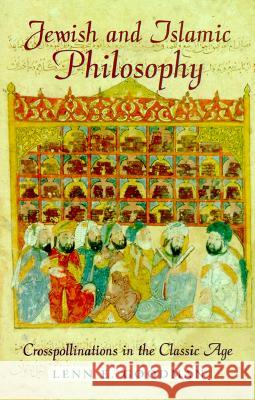Jewish and Islamic Philosophy: Crosspollinations in the Classic Age » książka
Jewish and Islamic Philosophy: Crosspollinations in the Classic Age
ISBN-13: 9780813527604 / Angielski / Twarda / 1999 / 248 str.
For centuries, Islamic and Jewish philosophies have blossomed side-by-side in a symbiosis that has produced some of the world's greatest thinkers and ideas. Lenn E. Goodman, one of the major luminaries in the field, focuses on a series of core issues common to the two intertwined philosophical traditions--freedom and determinism, the basis of ethical values, the relationship between faith and reason, the governance of God, the basis of friendship, and the meaning of history--to examine the rich and varied interactions of two traditions that have carried on a written conversation spanning the centuries. In accessible and elegant prose, Goodman analyzes the latent dialogues between dozens of influential Jewish and Islamic thinkers, including Muhammad Ibn Zakariya al-Razi, Saadiah Gaon, Bahya ibn Paquda, Avicenna, Maimonides, Ibn Khaldun, and Baruch Spinoza, among many others. The object of Goodman's discussion is not to find the "sources" of religious ideas (as if the credit the philosophical originality of one tradition or cast aspersions on the philosophical dependency of another), but rather to explicate, connect and demonstrate the commonalties of these two competing yet inextricably linked religious and philosophical traditions. Providing a detailed examination of both primary and secondary sources, Jewish and Islamic Philosophy offers readers a sophisticated analysis and evaluation of seminal thinkers from both traditions. It is sure to become a key text for all students in religious studies, Islamic studies, and philosophy. Lenn E. Goodman is a professor of philosophy at Vanderbilt University. He is the author of numerous books and articles on Jewish, Arabic, and comparative philosophy, including God of Abraham and Rambam.











